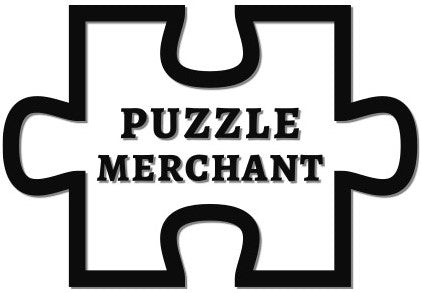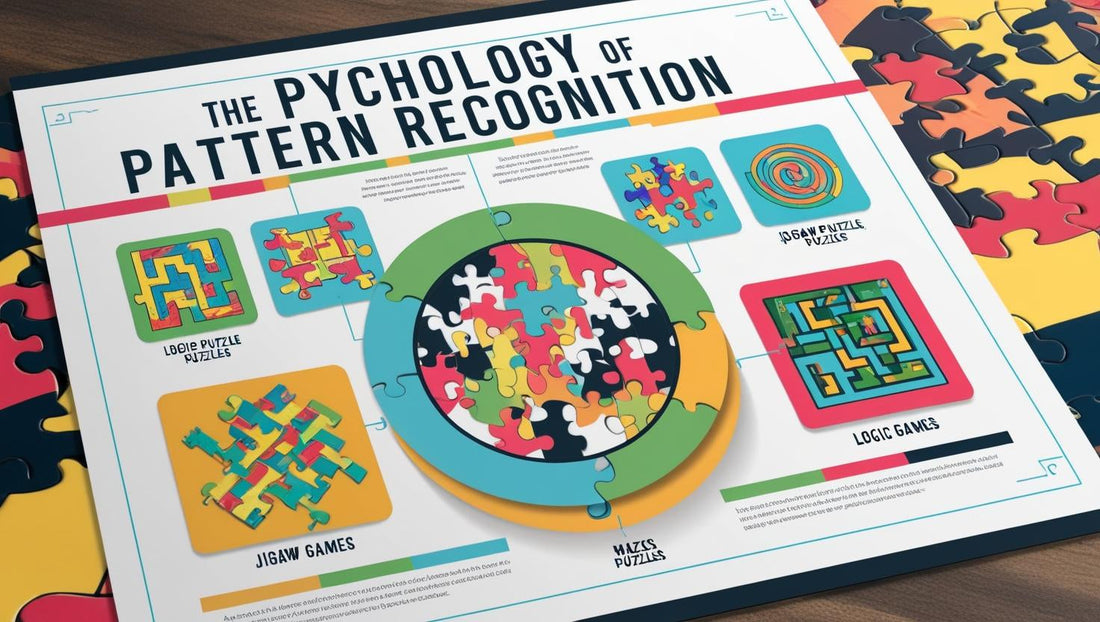Pattern recognition is one of the most fundamental cognitive abilities that humans possess. It allows us to make sense of the world by identifying recurring themes, sequences, and structures. This ability is crucial for problem-solving, decision-making, and learning. One of the most engaging ways to exercise pattern recognition is through puzzles.
Puzzles, whether in the form of jigsaw puzzles, Sudoku, crosswords, or logic problems, challenge the brain to recognize patterns and find solutions. But what is it about pattern recognition that makes puzzles so captivating? And how does solving puzzles benefit cognitive function? In this article, we explore the psychology behind pattern recognition and how puzzles push the brain to its limits.
Understanding Pattern Recognition in the Brain
Pattern recognition is the cognitive process of identifying relationships between elements. It allows humans to recognize faces, read text, and make predictions about future events based on past experiences.
How the Brain Recognizes Patterns
The brain processes patterns through a combination of:
- Sensory input processing: Visual, auditory, and tactile information help us detect repeating elements.
- Memory retrieval: The brain recalls similar patterns stored in memory to compare and analyze new information.
- Cognitive shortcuts: The brain uses heuristics to quickly identify known patterns and apply previous knowledge to new situations.
Neuroscientists suggest that pattern recognition is linked to both implicit learning (unconscious acquisition of knowledge) and explicit learning (conscious understanding of rules and structures). When we solve puzzles, both types of learning are engaged, strengthening neural connections and improving cognitive agility.
The Role of Puzzles in Enhancing Cognitive Skills
Puzzles are more than just entertainment; they provide a rigorous mental workout that can lead to lasting cognitive benefits. Different types of puzzles engage different cognitive processes:
1. Jigsaw Puzzles and Visual-Spatial Recognition
Jigsaw puzzles require the brain to analyze visual components, recognize edges and shapes, and determine how they fit together. This enhances spatial reasoning, which is essential for everyday tasks like navigation and design.
2. Sudoku and Logical Pattern Recognition
Number-based puzzles like Sudoku engage logical thinking by requiring players to find numerical sequences and avoid repeating numbers in a grid. This type of pattern recognition is closely tied to problem-solving and mathematical thinking.
3. Crossword Puzzles and Language Processing
Crosswords challenge verbal pattern recognition by prompting the brain to retrieve words that fit specific letter constraints. This improves vocabulary, memory recall, and linguistic skills.
4. Rubik’s Cube and Complex Pattern Analysis
The Rubik’s Cube requires multi-layered pattern recognition, combining spatial awareness, memory recall, and motor skills. Solving it strengthens executive function and cognitive flexibility.
Why Puzzles Are So Engaging: The Reward System
One of the reasons puzzles are so enjoyable is their impact on the brain's reward system. When we recognize a pattern and solve a puzzle, the brain releases dopamine, the neurotransmitter associated with pleasure and motivation. This chemical boost reinforces learning and encourages continued engagement.
The Role of Flow State
Puzzles also create an optimal state of engagement known as flow—a mental state where focus is heightened, distractions fade, and problem-solving becomes effortless. Achieving a flow state through puzzles provides a sense of fulfillment and relaxation.
The Psychological Benefits of Puzzle-Solving
Regularly engaging in puzzles offers a range of psychological benefits, including:
1. Improved Memory and Cognitive Longevity
Studies suggest that engaging in pattern-based puzzles can delay cognitive decline and reduce the risk of neurodegenerative diseases like Alzheimer’s. By keeping the brain active, puzzles help preserve memory function over time.
2. Enhanced Problem-Solving Skills
Pattern recognition strengthens critical thinking by training the brain to analyze situations, recognize solutions, and apply logical reasoning.
3. Reduced Stress and Anxiety
Solving puzzles promotes mindfulness by focusing attention on a single task. This can reduce stress and anxiety by providing a mental escape from worries.
4. Increased Attention to Detail
Finding small patterns in puzzles hones attention to detail, which translates into better observational skills in everyday life.
How to Improve Pattern Recognition Through Puzzles
To maximize cognitive benefits, try incorporating different types of puzzles into your routine:
1. Diversify Your Puzzles
Engage in a mix of puzzles—jigsaws, logic puzzles, and word games—to activate different areas of the brain.
2. Increase Difficulty Over Time
Challenge yourself with more complex puzzles to continually push cognitive boundaries and prevent stagnation.
3. Solve Puzzles Regularly
Make puzzle-solving a daily habit to keep your pattern recognition skills sharp.
4. Analyze Your Problem-Solving Approach
Reflect on how you approach puzzle-solving and look for ways to optimize strategies for efficiency.
Conclusion
Pattern recognition is a fundamental cognitive skill that enables us to navigate daily life, learn new information, and solve problems efficiently. Puzzles offer an engaging way to enhance this ability, challenging the brain to find relationships, complete sequences, and decode hidden structures. Whether it’s a jigsaw puzzle, a crossword, or a Rubik’s Cube, engaging with puzzles consistently provides long-term cognitive benefits and a satisfying mental workout.
The next time you pick up a puzzle, take a moment to appreciate the complex neurological processes at play. Not only are you entertaining yourself, but you are also sharpening your mind in ways that can benefit you for years to come.
About the writer: Will Roya is a lifelong gaming and puzzle enthusiast. He is the founder of Puzzle Merchant and author of the book Card Night.

Last update date: 2/11/25

